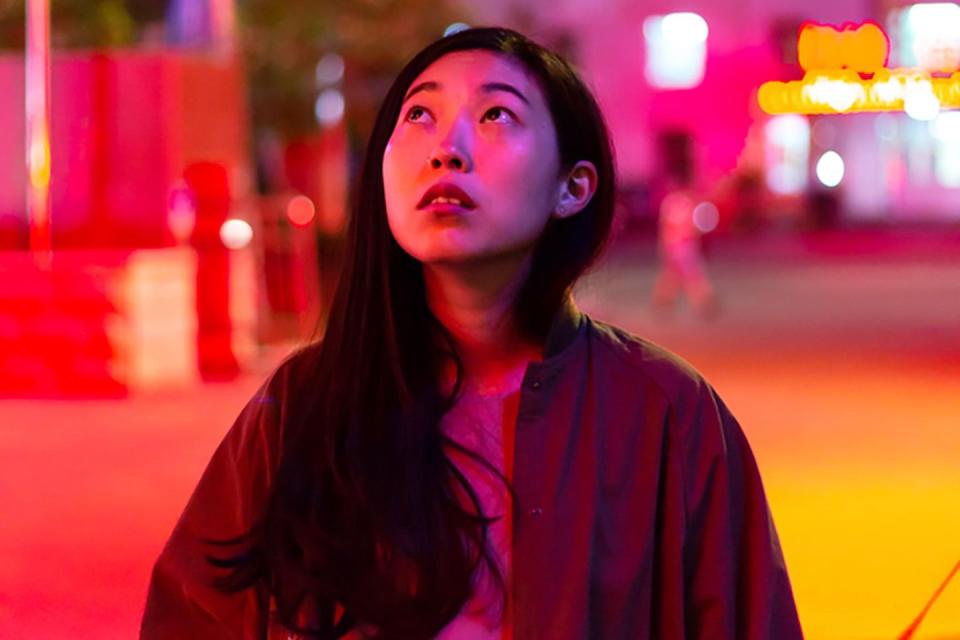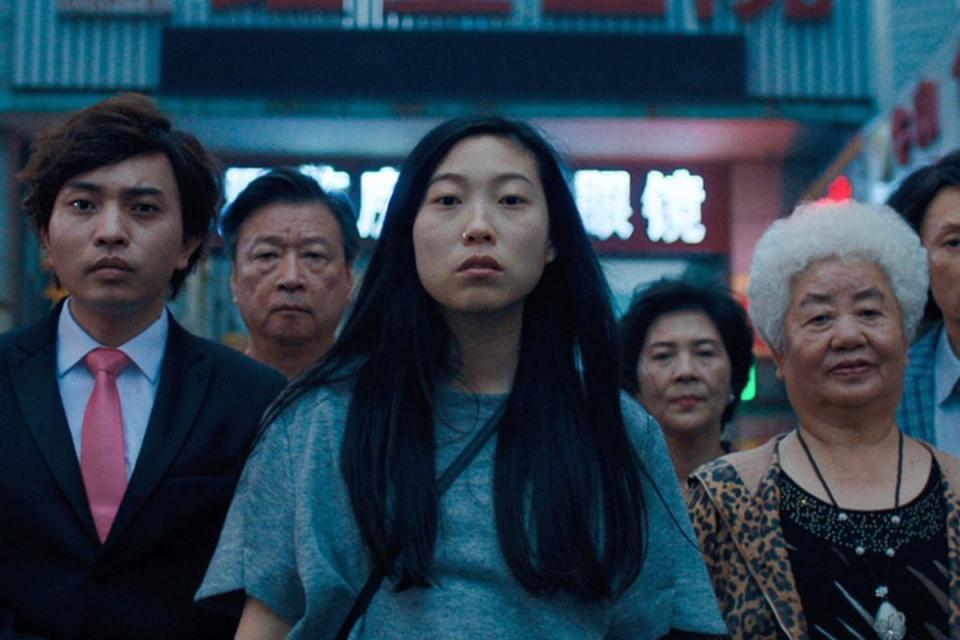Sundance Hit 'The Farewell' Is A Tragicomic Look At Saying Goodbye

Director Lulu Wang first shared the story of her grandmother's terminal cancer diagnosis, and how the family kept it a secret from grandma “Nai Nai”, on an episode of the podcast, This American Life.
The cover-up at first sounds suspicious, with another family member even creating a fake medical report to show her she wasn't ill, but as Wang explained, it follows the Chinese belief that "mental and emotional health are completely linked to physical health."
By giving her "joy instead of worry", and protecting her from the shock and pain of facing death, they shoulder the burden instead of her.
Wang is a Beijing-born American director whose first feature film, Posthumous, was a satire of the art scene in Changchun, the capital of northeast China's Jilin province. The Farewell has the same city setting, but digs further into the cultural anxieties of coming back to the place that is meant to feel like home.
Wang wrote a script for a film based on the story and took it to studios, but faced pressure from both US and Chinese producers to push it toward the narratives audiences were more familiar with. The result, a tale which sits on the edge of both cultures, but never fully feels at home in either, won the Audience Award at the 2019 Sundance London film festival, and was picked up for distribution by a24, the buzzy studio behind indie hits such as Lady Bird, Moonlight, Eighth Grade and Hereditary.

In The Farewell Awkwafina plays Billi, a fictionalised version of Wang and a role which suggests the actress' comedy roles have been wasting her talents. Alone and living in New York, she returns to North-East China for a "giant goodbye party disguised as a giant wedding", as one of her cousins is pressured to move his wedding forward a year.
Billi's dual identity is a source of constant conflict to her, feeling an immigrant and a native in both China and America, always just on the outside of feeling like she belongs. Some of the most interesting scenes are the conflict between the family in the East and those who left for the West, meals where they snipe at one another, with one telling Billi as though breaking bad news: "You're not that skinny!"
In another scene of cultures clashing, Nai Nai calls Billi to warn about thieves in New York who rip the earrings out your ear and leave you needing surgery. Billi tells her not to worry and jokes that she's "poor but sexy".

Food is a central part of the film, with the neon-lit markets and sizzling fried food stalls of Changchun capturing the sense of walking through streets that feel half-familiar but totally alien. “Every time I go back, it’s a completely different place, and all the things I once knew are gone,” Wang told the Guardian earlier this year. Elsewhere food is symbolic of family: the ceremony of eating together as a bonding force, and nourishment representing how meals help people going through grief.
As the farcical wedding ceremony arrives, the lie becomes both more ridiculous and more heartbreaking to watch. It is this line between joy and grief that The Farewell so expertly tip-toes, asking whether there is a correct way to say goodbye to those we love. "I wanted to grieve with her in the way that feels natural when someone is dying," Wang says of how she felt about the charade her family asked her to carry on with, something she later understands is more complicated than this.
Through Billi we see that families have more in common than they think, even it that doesn't include the best way to say farewell.
'The Farewell' is released 20 September
Like this article? Sign up to our newsletter to get more delivered straight to your inbox.
You Might Also Like

